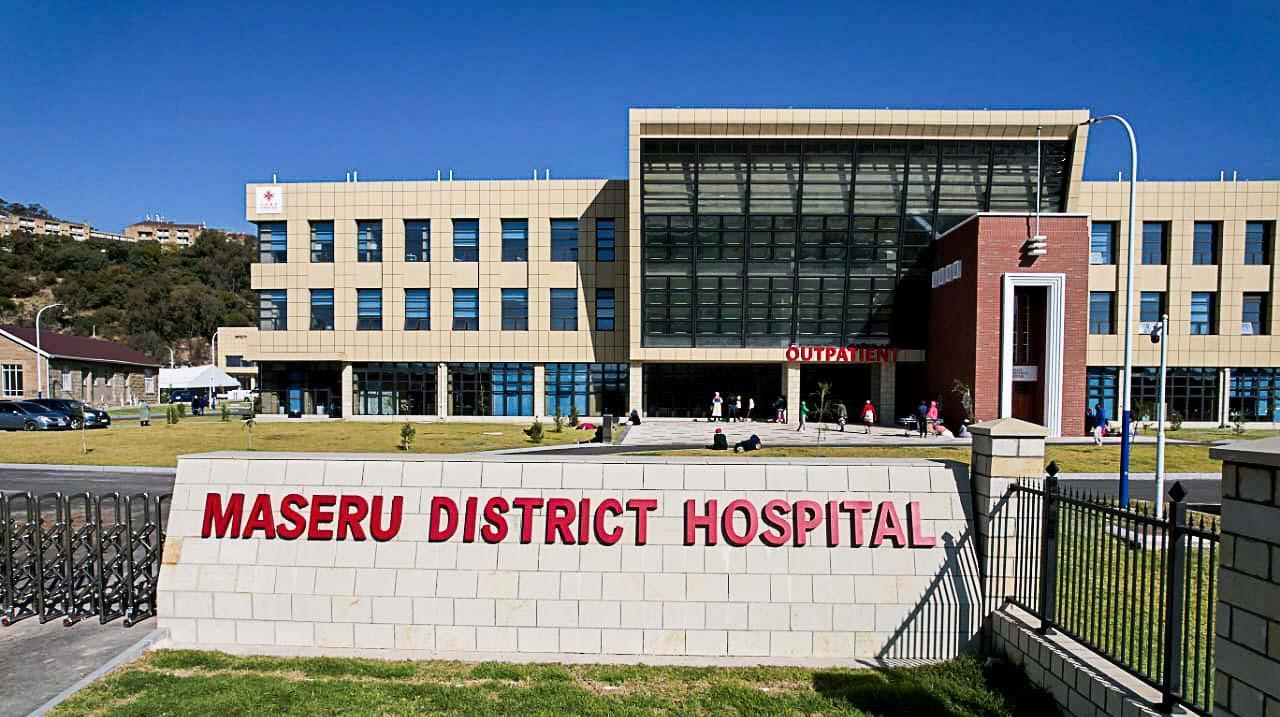Africa-Press – Lesotho. A deepening shortage of medical doctors has plunged the country’s leading referral hospital into a crisis, crippling its ability to deliver essential healthcare services.
The Maseru District Hospital and Eye Clinic, regarded as the nation’s premier centre of medical excellence, is struggling to cope with an ever-growing influx of patients, mainly due to a critical shortage of medical doctors.
The 200-bed hospital was established through a CNY400 million (almost M1 billion) donation from the Chinese government, with the People’s Republic of China’s Shanghai Construction Company beginning construction in April 2021 and completing the facility in April 2024.
It replaced the obsolete 120-year-old Queen Elizabeth II Hospital which was demolition in April 2020, while its staff was absorbed by the new hospital.
The Chinese government officially handed over the state-of-the-art Maseru District Hospital to the Government of Lesotho on 13 June 2024.
The referral facility, which has been treating outpatients since it opened and only began admitting inpatients in January this year, is expected to serve at least 400,000 people in Maseru and surrounding districts.
However, the current dire situation has sparked widespread concern among both patients and healthcare workers, raising fears of a potential collapse of critical services if urgent intervention is not made.
A patient who visited the hospital in the heart of Maseru earlier this week told the Lesotho Times that, regardless of their medical condition, patients are forced to wait until after lunch to see a doctor.
This, they are told, is because the available doctors spend the morning hours conducting ward rounds and only begin attending to outpatients in the afternoon.
This delay has led to worsening conditions among patients, with some reportedly being forced to go back home without receiving any medical attention.
A Lesotho Times journalist, ‘Makananelo Manamolela, went undercover to investigate the matter and visited the hospital last Tuesday seeking treatment for flu.
She arrived at around 7am, underwent a series of tests, and was told to wait for the doctor — who was reportedly busy attending to patients in wards first.
The doctor only began attending to patients after lunch and Manamolela said it was only at around 4pm that a doctor attended to her.
“We were at the Infectious Disease Department. Patients who had not yet done their tests — such as blood pressure, HIV, temperature, TB, and COVID-19 — were being attended to. Those who had completed the tests had to wait for the doctor to arrive.
“The doctor came around 2:30pm and only then started attending to patients. I even contacted the hospital’s public relations officer, who confirmed the shortage of doctors but assured me that the situation was being addressed,” she said.
Ms Manamolela added that patients were made to wait regardless of the severity of their condition, without giving priority to those who were critically ill.
Another patient from outside Maseru interviewed by the Lesotho Times said it was their second consecutive day of visiting the hospital, having failed to see a doctor the previous day.
“This is my second time here. Yesterday and today, we were told the doctor is still busy at the wards and will only be available after lunch. I couldn’t see the doctor yesterday because of the long queue. I had to sleep at a friend’s house nearby just so that I could come early and secure a spot in the queue, hoping to see the doctor this morning,” she said.
A nurse at the hospital, speaking on condition of anonymity, confirmed the severe shortage of doctors.
She revealed that some specialists had been transferred to Queen ‘Mamohato Memorial Hospital, leaving Maseru District Hospital in a precarious state.
When contacted for comment, the Ministry of Health’s Principal Secretary, ‘Maneo Ntene, declined to address the issue and referred this publication to the hospital manager, Dr Mapota Masoabi, saying she was better placed to respond.
Speaking to the Lesotho Times yesterday, Dr Masoabi confirmed the ongoing challenge of doctor shortages at the hospital but attributed it to doctors going on leave or for studies, without being replaced.
“The truth is, we are experiencing a shortage of doctors. Many are currently on annual leave, three are on maternity leave, and others have been taken to school to further their studies,” she explained. “Unlike in other ministries, where a temporary substitute is hired when someone goes on maternity leave or to school, here we are not given replacement doctors — the gap is simply left open.”
She also said resignations have further worsened the situation, as many doctors are leaving for greener pastures.
“Another challenge is that doctors are resigning in large numbers, going for greener pastures. Sometimes they even resign immediately after being hired once they learn that they can be placed anywhere in the country,” she said, citing a general reluctance among doctors to work for the government.
Dr Masoabi also revealed that the hospital is overwhelmed by an influx of patients from across Maseru District — many of whom bypass nearby clinics, which are often short of medicines and, instead, flock directly to the referral hospital.
“This should be a referral hospital. People should go to clinics in their communities, but they prefer coming here,” she said.
She said the doctors’ shortage was not unique to Maseru District Hospital, as other state-owned facilities, especially in rural areas, are facing the same crisis.
“This challenge is not only confined to our hospital here. The scarcity of doctors is also affecting districts like Qacha’s Nek and Thaba-Tseka. Doctors do not like working in rural areas and often resign once there is any sign that they could be deployed there,” she added.
However, she downplayed the severity of the situation and denied claims that doctors only begin attending to outpatients after lunch.
“I was at the hospital a few days ago this week, and this is news to me. Yes, we are facing a shortage of doctors, but the situation is not as extreme as it is being portrayed to be. Our doctors start their day with ward rounds and then proceed to attend to outpatients,” said Dr Masoabi.
She further clarified that in the Infectious Disease Department, patients are first attended to by nurses as a matter of course, and only those requiring further medical attention are referred to a doctor after ward rounds.
“It is standard practice for doctors to begin with ward rounds before moving to outpatient services,” she explained.
Dr Masoabi, however, assured the publication that she would investigate the matter further and promised to provide feedback once she had completed her inquiry.
For More News And Analysis About Lesotho Follow Africa-Press






